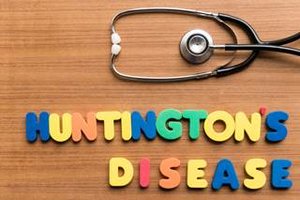- Home
- Editorial
- News
- Practice Guidelines
- Anesthesiology Guidelines
- Cancer Guidelines
- Cardiac Sciences Guidelines
- Critical Care Guidelines
- Dentistry Guidelines
- Dermatology Guidelines
- Diabetes and Endo Guidelines
- Diagnostics Guidelines
- ENT Guidelines
- Featured Practice Guidelines
- Gastroenterology Guidelines
- Geriatrics Guidelines
- Medicine Guidelines
- Nephrology Guidelines
- Neurosciences Guidelines
- Obs and Gynae Guidelines
- Ophthalmology Guidelines
- Orthopaedics Guidelines
- Paediatrics Guidelines
- Psychiatry Guidelines
- Pulmonology Guidelines
- Radiology Guidelines
- Surgery Guidelines
- Urology Guidelines
Scientists find new clues to treat Huntington's

The treatment for neurological disorder, Huntington's disease, could be in the offing. A group of researchers from the Indian Institute of Technology-Indore have identified three chemical molecules that could potentially be used to arrest its progression.
Huntington's disease is a movement disorder that includes walking abnormality, muscle spasm, hallucinations, depressions, and tremors. It is caused by a type of genetic mutation called trinucleotide repeat expansion in a gene named huntingtin gene. It has a prevalence of five to 10 cases per 100,000 worldwide, which makes it the most common inherited neurodegenerative disorder. Children of those suffering from the disease have a 50% chance of inheriting it.
Scientists across the world have been working to find a cure for it. Some leads have been found and efforts are underway to develop them into drugs. Researchers involved in the present study had themselves found two years ago that a naturally available molecule called Myricetin could help in arresting the progress of the disease and published a report on their work in the journal ACS Chemical Biology.
Myricetin is a member of a family of chemicals called flavonoids. They are known for their antioxidant properties. It is commonly available in daily diets including vegetables, fruits, nuts, berries, and tea. It is also found in red wine.
The new study is an extension of that work. The research team led by Dr. Amit Kumar, Associate Professor of Biosciences and Biomedical Engineering at the Institute, searched a database of 2.5 million small molecules maintained by the United States of America’s National Cancer Institute considering that chemical molecules can be better than the naturally available substance as they can be mass produced.
They found that 38 molecules shared planar structure and chemical similarity with Myricetin. These were further screened. While all of them were found to reduce the pathogenesis of the disease both in cellular models of Huntington's disease and cell line derived from persons suffering from the disease, three compounds were found to be more effective than Myricetin.
Speaking to India Science Wire, Dr. Kumar said, “trinucleotide repeat expansion is involved in disease progression for more than nine neurological disorders. We hope our finding would help in developing therauetics for Huntington's disease as well as for the other related disorders.”
Besides Dr.Amit Kumar, the team included Eshan Khan, Subodh Kumar Mishra, Ribhav Mishra and Amit Mishra. The study results have been published in the journal Scientific Reports.
India Science Wire

Disclaimer: This site is primarily intended for healthcare professionals. Any content/information on this website does not replace the advice of medical and/or health professionals and should not be construed as medical/diagnostic advice/endorsement or prescription. Use of this site is subject to our terms of use, privacy policy, advertisement policy. © 2020 Minerva Medical Treatment Pvt Ltd